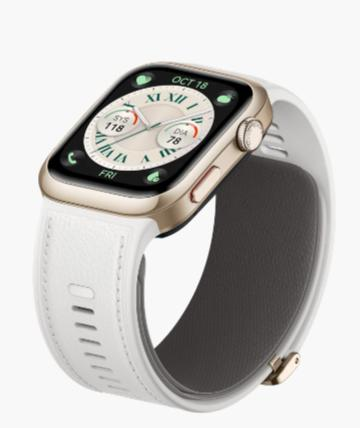Blood
pressure measurement is a fundamental aspect of managing health, yet its
accuracy can be influenced significantly by the timing of the measurement.
Various factors, including daily activities and physiological rhythms, can
cause fluctuations in blood pressure throughout the day. Therefore,
understanding when is the best time to take my blood pressure can lead to more accurate and
consistent readings, ultimately aiding in more effective health management.

Why Timing Matters in Blood Pressure Readings
The
timing of a blood pressure reading is crucial because blood pressure varies
naturally over the course of a day. Factors such as physical activity, stress,
diet, and even the time of day itself cause these variations. By knowing when
your blood pressure tends to peak or fall, you can ensure that you are getting
the most accurate measurement possible. Accurate readings are especially
important for those managing hypertension or other medical conditions where
blood pressure plays a crucial role.
The Ideal Time to Measure Blood Pressure
Research
and medical advice suggest that the best time to measure blood pressure is in
the morning, ideally before eating, exercising, or taking medications. This
period is recommended because it provides a baseline reading, avoiding
fluctuations caused by various activities throughout the day. Measuring in the
morning gives your healthcare provider a clear idea of your blood pressure
under resting conditions, which is crucial for accurate diagnosis and
treatment.
Morning
vs. Evening Readings
Morning
readings are typically considered ideal because they capture blood pressure
after a night of rest. During sleep, the body is in a relaxed state, which can
lead to lower blood pressure. However, it’s important to understand that blood
pressure can also be higher in the morning due to the process of waking up and
increased levels of hormones like adrenaline, which prepare the body to start
the day. On the other hand, evening readings may be affected by the day’s
activities. Stressful events, physical activity, and dietary choices can cause
variations in the evening. Therefore, for consistent monitoring, it’s essential
to use the same timing each day and note any influences that could affect the
results. This dual approach ensures more comprehensive monitoring and helps in
better management of one’s blood pressure.
Measuring
Blood Pressure After a Rest
Taking
your blood pressure after a period of rest is another way to ensure accurate
readings. When the body is at rest, it is less affected by external factors
that can cause blood pressure to fluctuate. Try to sit quietly for at least
five minutes before taking a measurement. Ensure you are seated comfortably
with your back supported and feet flat on the floor. This resting period allows
your body to stabilize and provides a more accurate resting blood pressure
measurement.
What to Avoid Before Checking Your Blood Pressure
Certain
activities can significantly affect blood pressure readings. To ensure
accuracy, avoid engaging in strenuous exercise, consuming caffeine or alcohol,
smoking, and being in a stressful situation before measuring your blood
pressure. Exercise can temporarily raise blood pressure, while caffeine,
alcohol, and smoking can cause fluctuations. Stress, too, can elevate blood
pressure levels. By avoiding these activities and ensuring a calm and stable
environment, you can get the most accurate reading possible. Aim to wait at
least 30 minutes after these activities before taking a measurement.

Food
and Drink
Consuming
food and drink can influence blood pressure readings, particularly caffeine and
alcohol. Caffeine can cause short-term spikes in blood pressure, so it’s best
avoided for at least 30 minutes before taking a measurement. Similarly, alcohol
can affect blood pressure, sometimes lowering it and other times causing it to
rise. For those with hypertension or on medication, the impact of alcohol can
be significant. To ensure accurate readings, it is advisable to check blood
pressure in a fasting state or at least an hour after meals. This approach
reduces the effect of digestion on your readings.
Exercise
and Stress
Both
physical activity and emotional stress have a profound impact on blood
pressure. Exercise increases your heart rate and blood pressure temporarily.
Therefore, avoid checking your blood pressure immediately after workouts.
Resting for at least 30 minutes post-exercise can provide a more accurate
measurement. Similarly, stress and anxiety can elevate blood pressure as a part
of the body’s natural fight or flight response. Practicing relaxation
techniques like deep breathing before a measurement can help in obtaining a
more accurate reading. Ensuring you are in a calm state is key to accurate
blood pressure monitoring.
How Often Should You Check Your Blood Pressure?
The
frequency of blood pressure monitoring depends largely on your health
condition. For individuals diagnosed with hypertension, daily monitoring may be
recommended, particularly when adjusting medications or lifestyle changes.
Consistent readings provide a comprehensive picture for healthcare providers to
tailor treatments effectively. For healthy individuals with no history of blood
pressure problems, checking once a month or as recommended by healthcare
professionals may suffice. Using devices like the HUAWEI WATCH D2, which offer
continuous monitoring, can also provide valuable trend data and insights,
aiding in better health management.
Conclusion
Understanding
when to check your blood pressure can significantly impact the accuracy of your
readings. Ideally, measurements should be taken in the morning or after a
period of rest, and it is important to avoid certain activities like eating,
exercising, smoking, or consuming alcohol beforehand. Using reliable monitoring
tools and keeping a consistent schedule can help ensure that you get the most
accurate readings, aiding in effective health management. Regular monitoring,
especially for those with hypertension, and proper timing are crucial for
maintaining optimal health.
